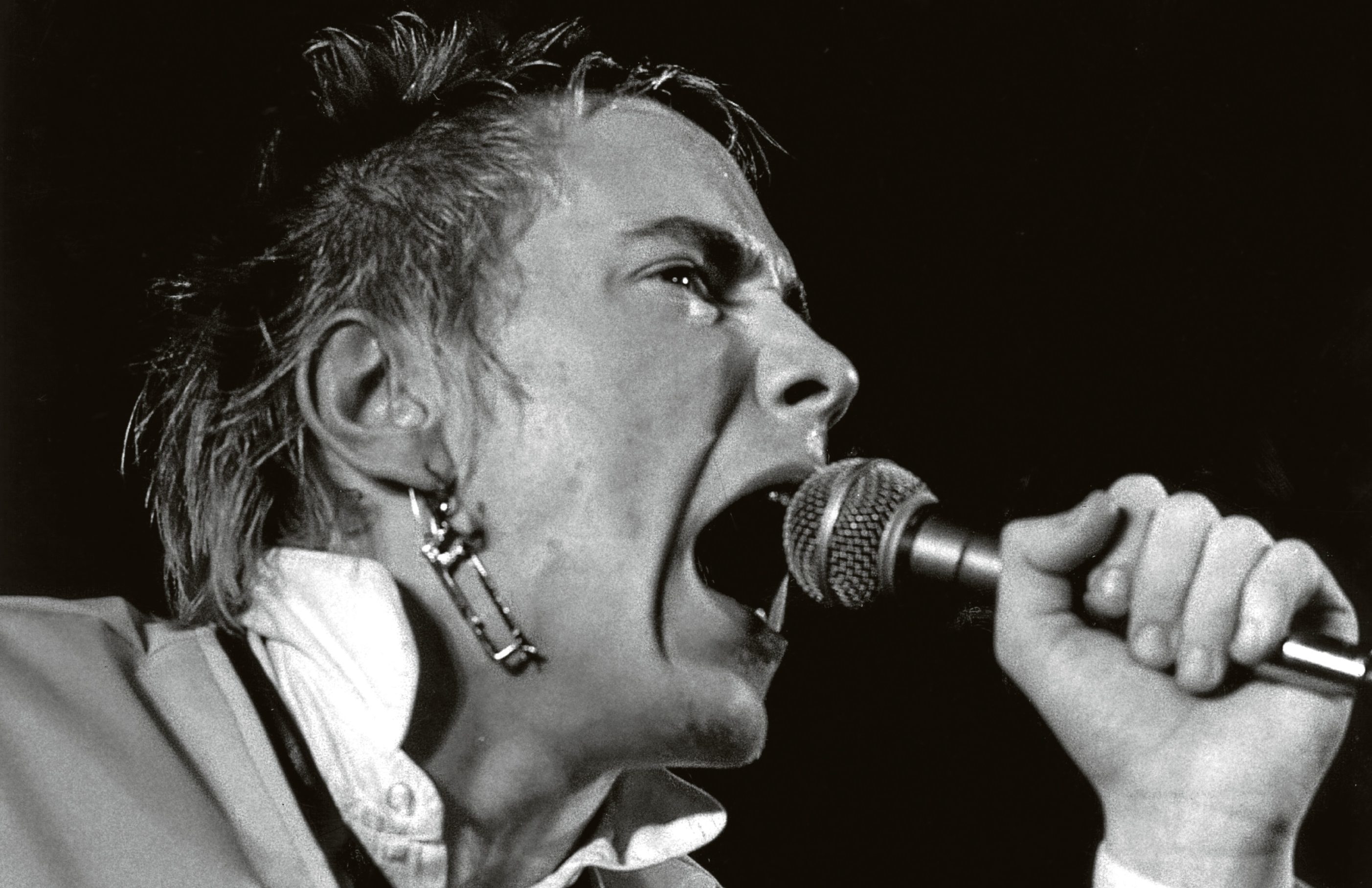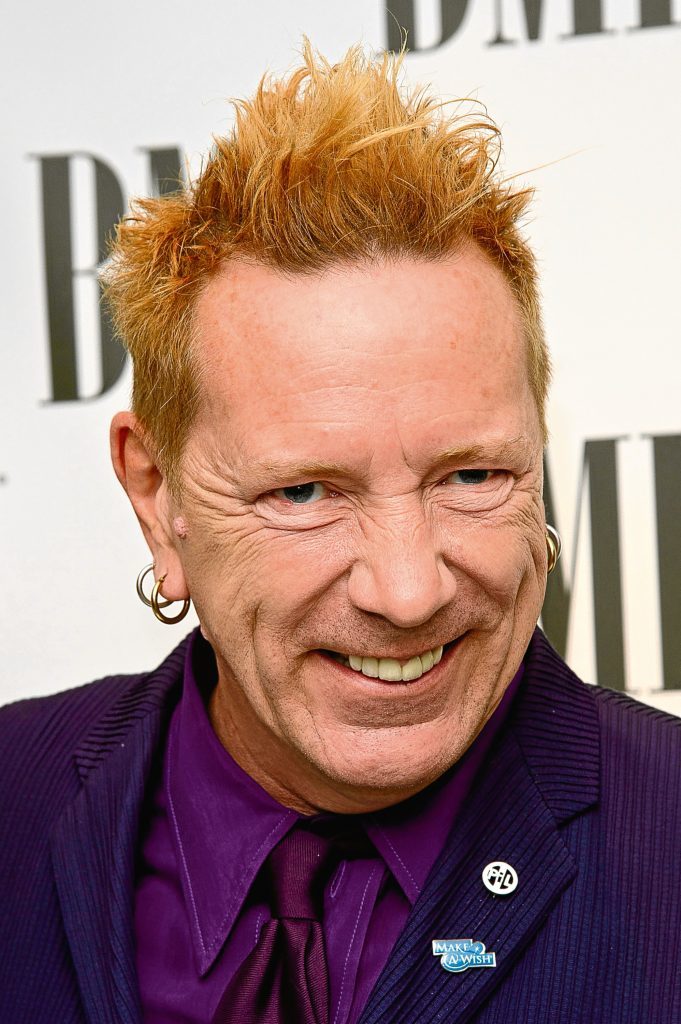
AT the risk of making you feel old — or angry again — December 1 will be exactly 40 years since The Sex Pistols caused outrage on ITV’s Today show.
That was the day the punk rockers smoked, drank and swore on telly, causing one Englishman to put his boot through his new TV set and tour companies to cancel concerts featuring the foul-mouthed band.
It did them no harm ultimately, as notoriety helped them sell more records.
Incredibly, it was only because of Freddie Mercury’s famous gnashers that it happened at all!
Freddie and Queen were due to appear on the show, hosted by Bill Grundy, but he had toothache and their record company, EMI, offered the Pistols as a last-minute replacement!
It led to newspaper headlines such as The Filth and The Fury, and EMI soon dropped the Pistols.
They only made one studio album, were average musicians at best, and their singer got his name for his rotten teeth, but they did change the world of music.
It had been November 26, 1976, that their first single Anarchy In The UK, was released, and the Pistols would go on to inspire revulsion and adulation, riots and fashion trends.
The year before, Steve Jones had fancied himself as a singer, Paul Cook was on drums, and various others flitted in and out of their pub band, The Strand.
But it was going nowhere fast, and Jones didn’t fancy being at the mic.
Malcolm McLaren had a boutique in the King’s Road, London, and Vivienne Westwood made the weird and wonderful collection of clothes he sold there.
But McLaren also fancied himself as a music manager, and finally gave in when Steve Jones went on and on at him to turn his band into stars.
He gave them rehearsal space, helped find a bass player, Glen Matlock, and eventually a singer with a big-enough personality to make them special.
Matlock, an arty student who loved The Beatles, was just a bit too musical for the others, and Sid Vicious would soon replace him.
Vicious, who could barely play the bass, would be arrested for the murder of his American girlfriend, Nancy Spungen, and die himself, aged 21, in 1979.
But, compared to the pretty, fresh-faced songwriter Matlock, he seemed to fit the band’s image more, even if he wasn’t able to bring anything musical to them.
As for lead singer John Lydon, when he first came to the attention of the band, he was wearing a Pink Floyd T-shirt with I Hate scrawled above it.
It was also full of holes, held together with safety pins, and they had certainly found themselves a character they called Johnny Rotten because of his teeth.
But could he sing? And did it matter?
It’s said that during the band’s first rehearsal with him, they rolled on the floor laughing at Lydon’s singing attempts, but loved his energy and anger.
McLaren had witnessed the first so-called punk bands on trips to New York, and felt this lot could be a British version. In the end, they became the biggest punk band of them all.
Even McLaren’s colleague Bernie Rhodes, who loved the Pistols, found a band of his own, who would do rather well — The Clash.
McLaren, who died of cancer in 2010, would happily admit he was no music expert, but in management, he was a master at getting the Pistols to grab headlines, usually by foul language, yobbish behaviour and anything that would cause an outcry.
When they swore on the Today show, the reaction made them the most talked-about people in the UK, and their infamy began to spread across the globe.
Later, they’d admit to having had more than a few drinks before it, as would host Grundy.
He certainly seemed to be letting the drink talk when he tried to chat up one of the band’s punk pals, Siouxsie Sioux.
Steve Jones, the Pistols’ guitarist, took exception and called him a dirty old man.
“Well, keep going, chief, keep going,” Grundy replied — all live on air — “Go on! You’ve got another five seconds!”
Jones swore at him, and around the country, people spat out their cuppa and reached for the phone to complain.
Grundy encouraged Jones again, and he swore again, the language getting worse.
All over the UK, the papers would report next day, there was shock and outrage.
It would have been impossible for McLaren to have planned all this, but it couldn’t have worked better — although many people now despised the Pistols and this whole new punk thing, vast numbers of kids were thrilled.
Music, since The Beatles’ break-up at the start of the decade, had been getting more self-indulgent, with guitarists playing show-off solos that lasted half an hour.
There had been nothing, apart from Bowie and Glam Rock, for Britain’s ordinary kids — they had something now!
Anarchy In The UK was a new kind of song. Angry, not terribly melodic, with lyrics screamed in a rage, rather than sung.
The Pistols’ next single, God Save The Queen, released in 1977’s Silver Jubilee year, would also cause horror, along with love and massive sales.
While the nation celebrated Her Majesty’s landmark year with street parties, the punks spat on their heroes, fought with their many enemies and revelled in their notoriety.
More singles would follow, as would an album. Never Mind The B****cks, Here’s The Sex Pistols would include a song, EMI, about one of their labels.
The lyric also mentioned another label, A&M. The band’s antics had seen them get signed by, and then dropped by, both.
Virgin took them on, and the album sold like hotcakes. Still does, in fact!
Not that any of this huge success got them anywhere in their own country — the BBC banned them after God Save The Queen, many record shops refused to stock it, and when it got to No. 1, they just didn’t even mention it.
Far from loving the money, fame and success, Johnny Rotten had quickly grown sick of the whole thing, and quit the band.
He’d go off to make his own kind of music, and his new band, Public Image Ltd, did very well indeed.
Though Jones and Cook have done work here and there, they faded from the music scene.
Today, it’s incredible to see Johnny Rotten, or John Lydon to give him his real name, appear on chat shows like Piers Morgan’s, or in I’m A Celebrity.
Usually reserved for the likes of “Establishment” stars like Sir Elton John and famous actors, Britain seems to have gradually accepted he and his band did become icons.
And all this from a few swear words four decades years ago, by a bunch of ordinary blokes who’d stolen their first instruments!
READ MORE
TV interviews that shocked the world with confessions, tears and fury

Enjoy the convenience of having The Sunday Post delivered as a digital ePaper straight to your smartphone, tablet or computer.
Subscribe for only £5.49 a month and enjoy all the benefits of the printed paper as a digital replica.
Subscribe